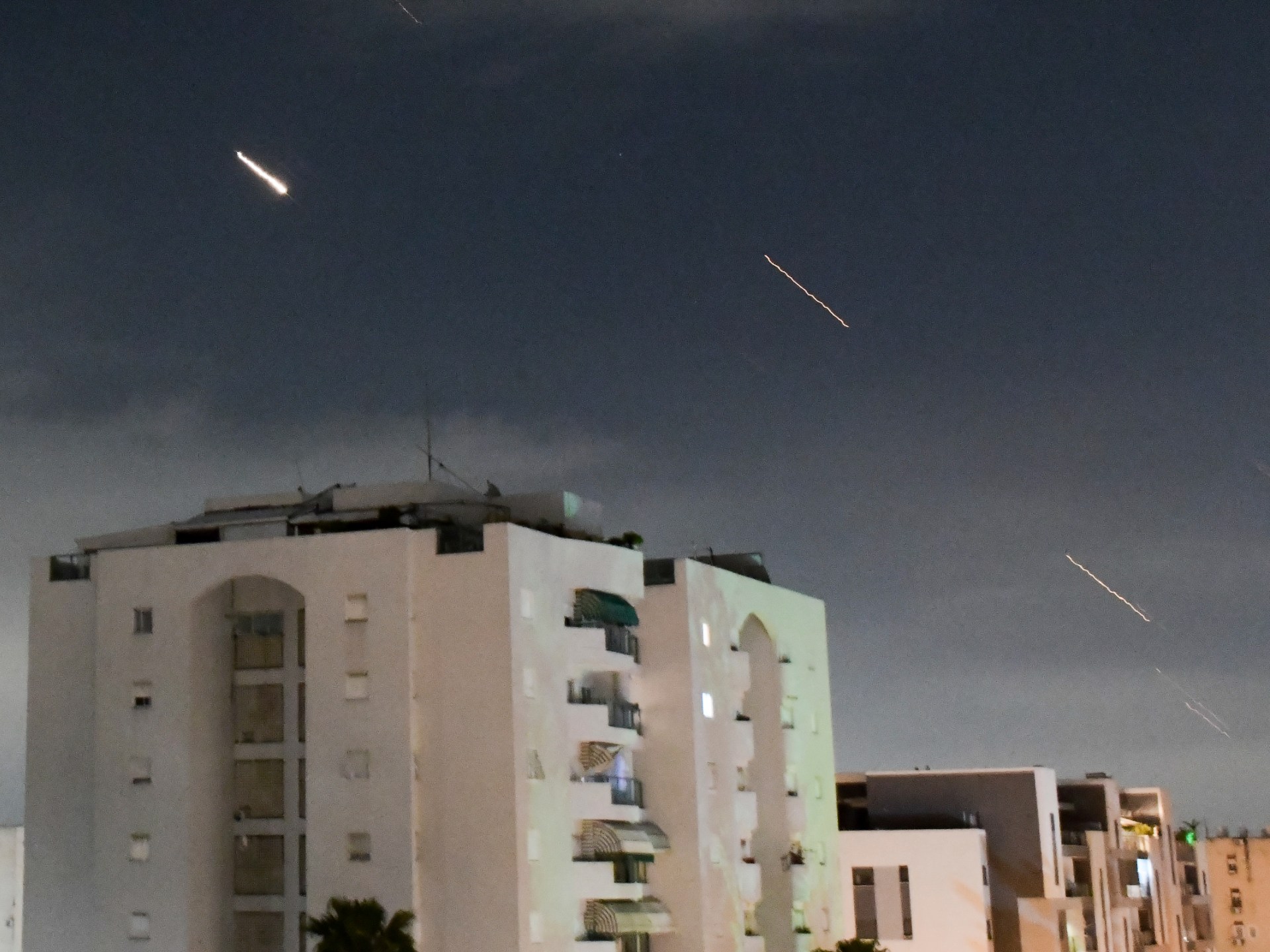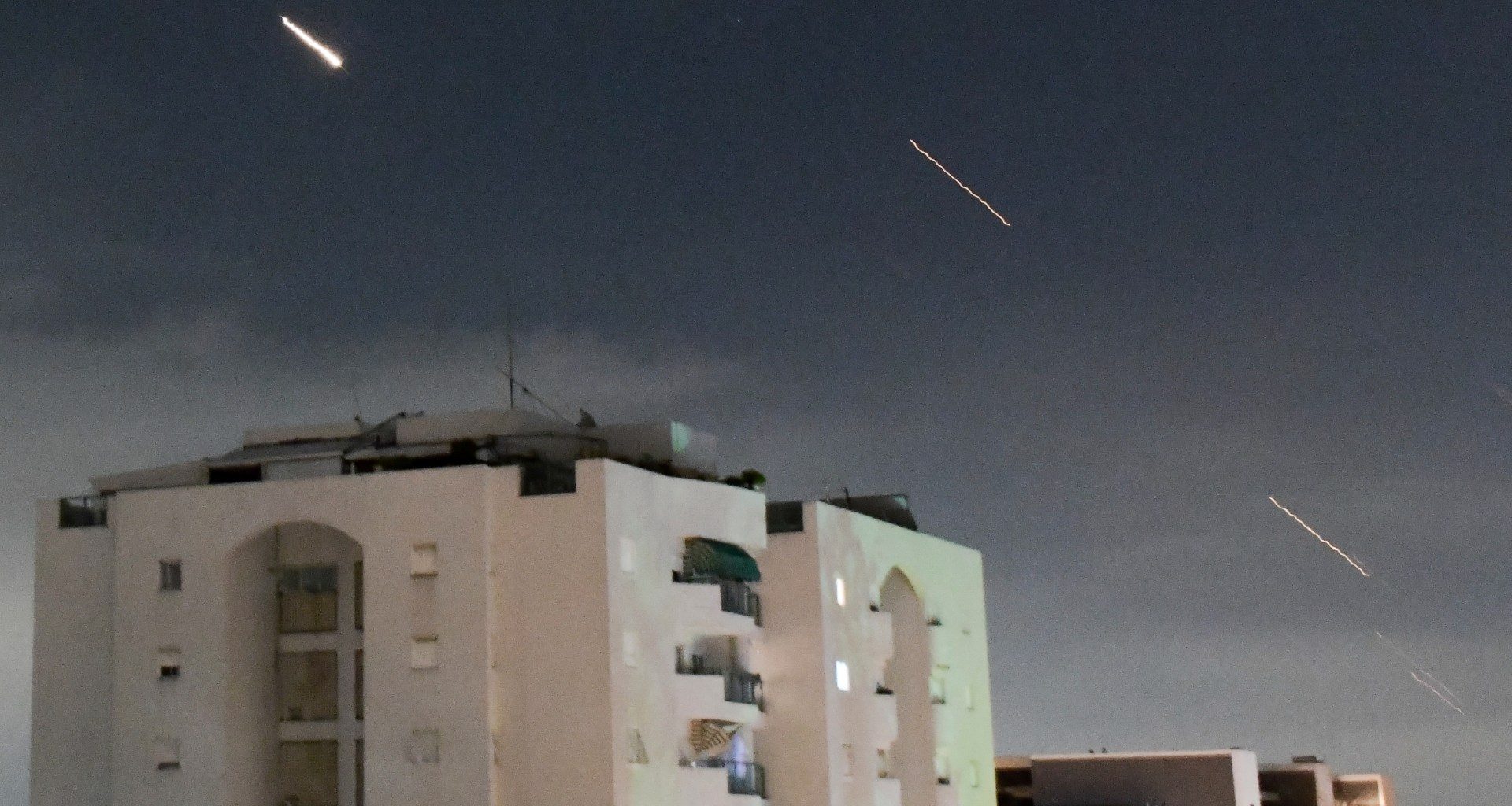
On Saturday, April 13, Iran launched hundreds of drones and missiles at Israel in retaliation for a deadly Israeli strike on the Iranian consulate in Damascus, Syria, that took place on April 1.
The vast majority of the projectiles were intercepted by Israel’s air defence system, with assistance from the ever-helpful United States military, and damage was minimal. Having completed its retaliation, Iran has now declared that the matter can “be deemed concluded” – although Israel is not usually one to let anyone else have the last word.
In the meantime, the barrage of criticism of Tehran’s “aggression” has continued unabated in the West.
British Prime Minister Rishi Sunak condemned “in the strongest terms the Iranian regime’s reckless attack against Israel”, which he insisted had once again shown that Iran was “intent on sowing chaos in its own backyard”. The Czech Ministry of Foreign Affairs lamented that “Iran’s long term aggressive behavior is preventing the Middle East region to live in peace and security”.
For his part, Canadian Prime Minister Justin Trudeau whined about Iran’s “disregard for peace and stability in the region”, and regurgitated that old, tired slogan about “Israel’s right to defend itself”. Germany’s Ambassador to Israel Steffen Seibert took to social media to proclaim German solidarity “with all Israelis tonight whom Iran is terrorising with this unprecedented and ruthless attack”.
Lastly, US President Joe Biden, who was forced to cut his beach weekend short due to the developments, announced: “Our commitment to Israel’s security against threats from Iran and its proxies is ironclad.”
The Iranian attack, mind you, occurred a little over six months into Israel’s ongoing pulverisation of the Gaza Strip, which has killed nearly 34,000 Palestinians, including some 13,800 children. And yet given the thousands of missing persons presumed to be buried under the rubble, even these terrifying numbers are no doubt grave underestimates.
More than 76,000 people have been wounded, as the Israeli military has busied itself flattening entire neighbourhoods and blowing up schools, hospitals, and other basic infrastructure, all the while condemning the territory’s inhabitants to famine and starvation.
Talk about “terrorising”.
Indeed, genocide is nothing if not “long term aggressive behaviour” – to borrow the Czech Foreign Ministry’s words. If the whole business weren’t so unprecedently heinous, it would be almost laughable to claim that Iran is the one “intent on sowing chaos” and disregarding “peace and stability in the region”.
But because Israel’s outsize role as a prized US partner in crime entitles it to a total subversion of logic, genocidaires become victims and unmitigated Israeli aggression becomes “self-defence”. And never mind the April 1 Israeli attack on the Iranian consulate in Damascus; that was just preemptive retaliation, right?
In light of the unceasing slaughter in Gaza, though, the Western response to the intercepted Iranian missiles and drones is sickeningly cynical. Sunak’s pathetic claim that “no one wants to see more bloodshed” fails to account for the reality that, as long as it’s Palestinian blood, it’s all totally fine.
Unfortunately, the Iranian spectacle may provide the Biden administration with exactly what it needs to shift the focus away from Gaza – and specifically US complicity in genocide. After all, it would be a sad day for the arms industry if the US had to stop sending so many weapons to such an active client.
According to the Stockholm International Peace Research Institute, the US was responsible for a full 69 percent of arms imports by the Israeli military between 2019 and 2023, when the all-out genocide kicked off.
So much for “peace and stability”.
But one should never underestimate the imperial utility of the good old Iranian menace in justifying whatever US policy needs justifying. Recall Tehran’s inclusion on the original “axis of evil” shortlist, courtesy of former US President George W Bush, who in his 2002 State of the Union address denounced Iran for “aggressively” pursuing weapons of mass destruction and “export[ing] terror”.
Armed with said “axis”, the US proceeded to engage in nothing less than mass destruction and terror throughout the Middle East and beyond.
Fast-forward 22 years to the present era of destruction, and the Iranian bogeyman is as handy as ever. Following this weekend’s attack, perhaps everyone’s favourite refrain “But do you condemn Hamas?” can be updated to: “But do you condemn Iran?”
As for things genuinely worthy of condemnation, these continue to include, well, genocide in Gaza – not to mention the brazenly hypocritical Western insistence on Israel’s “right to self-defence”, which ultimately amounts to genocidal apologetics.
And as leaders continue to trip over themselves in affirmation of solidarity with Israel after this “unprecedented attack”, we’d all do well to remember that you reap what you sow – and that Iran is not the aggressor here.
The views expressed in this article are the author’s own and do not necessarily reflect Al Jazeera’s editorial stance.
Read More: World News | Entertainment News | Celeb News
Aljazera










